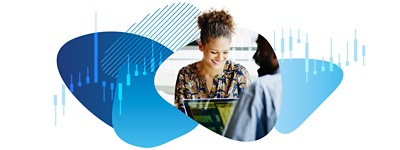22 November 2023 marks 60 years since Lee Harvey Oswald assassinated John F Kennedy. The 35th president of the United States knew plenty about handling pressure in uncertain times. JFK commanded patrol torpedo boats during World War II, was at the helm during the Cuban Missile Crisis and signed the first nuclear weapons treaty a month before his premature death.
What would the youngest-serving US president have made of modern-day pressures, not least the advancement of AI in the post-pandemic world? Kennedy’s observation that “the Chinese use two brush strokes to write the word ‘crisis’” is perhaps apposite. “One brush stroke stands for danger; the other for opportunity,” he explained. “In a crisis, be aware of the danger – but recognise the opportunity.”
CFOs and CHROs would be wise to heed JFK’s words and recognise the opportunity presented by AI. Admittedly, they have had it more challenging than most since the start of the COVID-19 crisis and during the ongoing cost-of-living crisis. And, considering CFOs and CHROs have seen their list of responsibilities multiply in recent years, they may not have the time or inclination to engage with a technology that, as many predict, will cut human jobs and possibly slaughter humanity, according to some doom-mongering experts.
However, embracing AI enables those operating in these spaces to handle their workload better, focus deeper on identifying and nurturing talent – which is why most HR professionals enter the industry – and manage finances, the chief concern of CFOs.
Further, with more data at their fingertips, both can play more critical roles strategically, working closely together and with other members of the C-suite.
Holistic approach
“The best HR teams impact right across the operations and strategy of organisations and are looking outside them to anticipate the coming challenges and opportunities too,” says Lesley Richards, Head of the Chartered Institute of Personnel and Development (CIPD) in Wales. “It is absolutely right to say that a more holistic approach is necessary. In fact, it’s really hard to create excellence in this type of work without all of the critical elements being well aligned.”
Notably, ‘Will AI fix work?”,由微软——5月发表的一份报告has invested billions of pounds in OpenAI, creator of ChatGPT and DALL-E – suggested it will be the HR professionals, working in concert with finance teams, that can best understand and use AI who will communicate better with workers and improve the overall employee experience.
As the axiom goes, a happy worker is a productive worker, so it is worth CFOs working closer with CHROs. Increasingly, data-powered AI is the golden thread that binds together their work, enabling smarter decisions around employee recruitment, retention, performance and career development.
While 49 percent of around 30,000 respondents to Microsoft’s global survey reported they were worried that AI would consume their jobs, considerably more (70 percent) wanted to delegate as much work as possible to AI to lessen their loads. “Human-AI collaboration will be the next transformational work pattern,” stated the report.
Clare Barclay, Microsoft UK’s Chief Executive, expanded this theme when she took to the stage at London Tech Week in June. “This wave of AI innovation sweeping the world right now is going to impact the world for generations to come,” she enthused. “It will be the most significant inflection point in our lifetime.”












